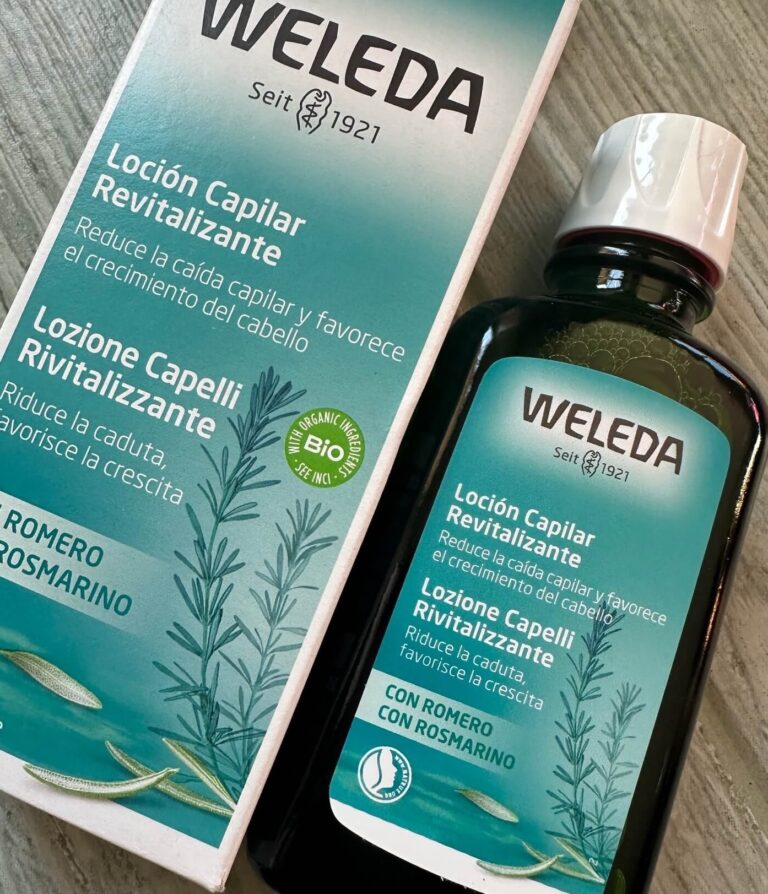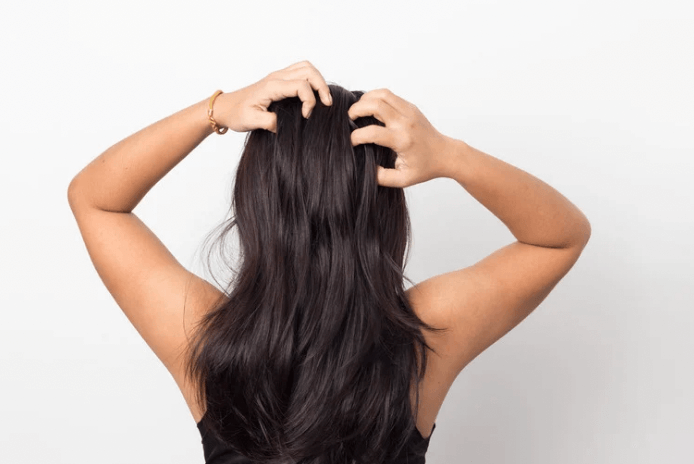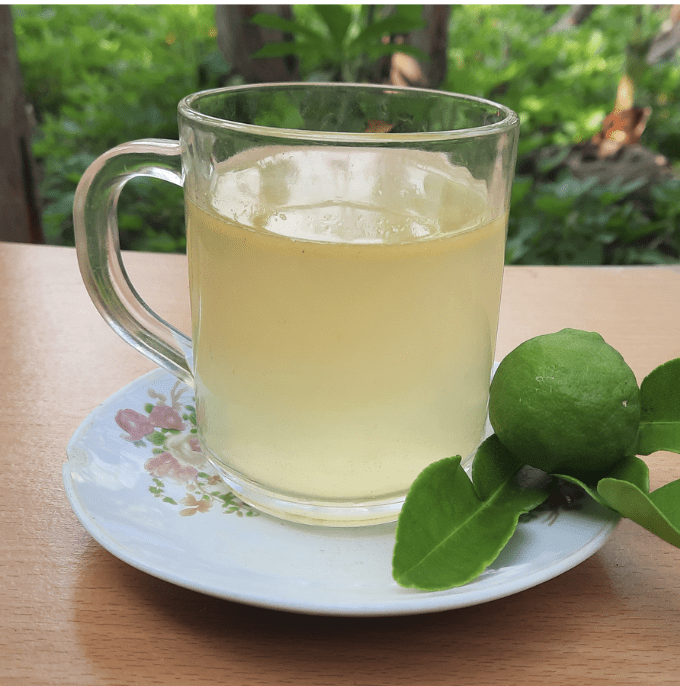The Benefits of Copper: Why This Ancient Metal Still Matters Today
The benefits of copper have been known since ancient times.
From ancient Egyptians using it to sterilize wounds to modern nutritionists recommending it for better hair and blood health, copper has been part of human life for thousands of years.
It’s the first metal humans worked with in the Copper Age, and it’s still essential for the human body today.
I’m going to break down the real copper supplement benefits, the history, how it works in the body, the risks, and even my personal experience with it.
This isn’t just a science lecture. I’ve personally tried copper supplements for hair and energy, and I’ll share what worked and what didn’t.
Let’s get into it.
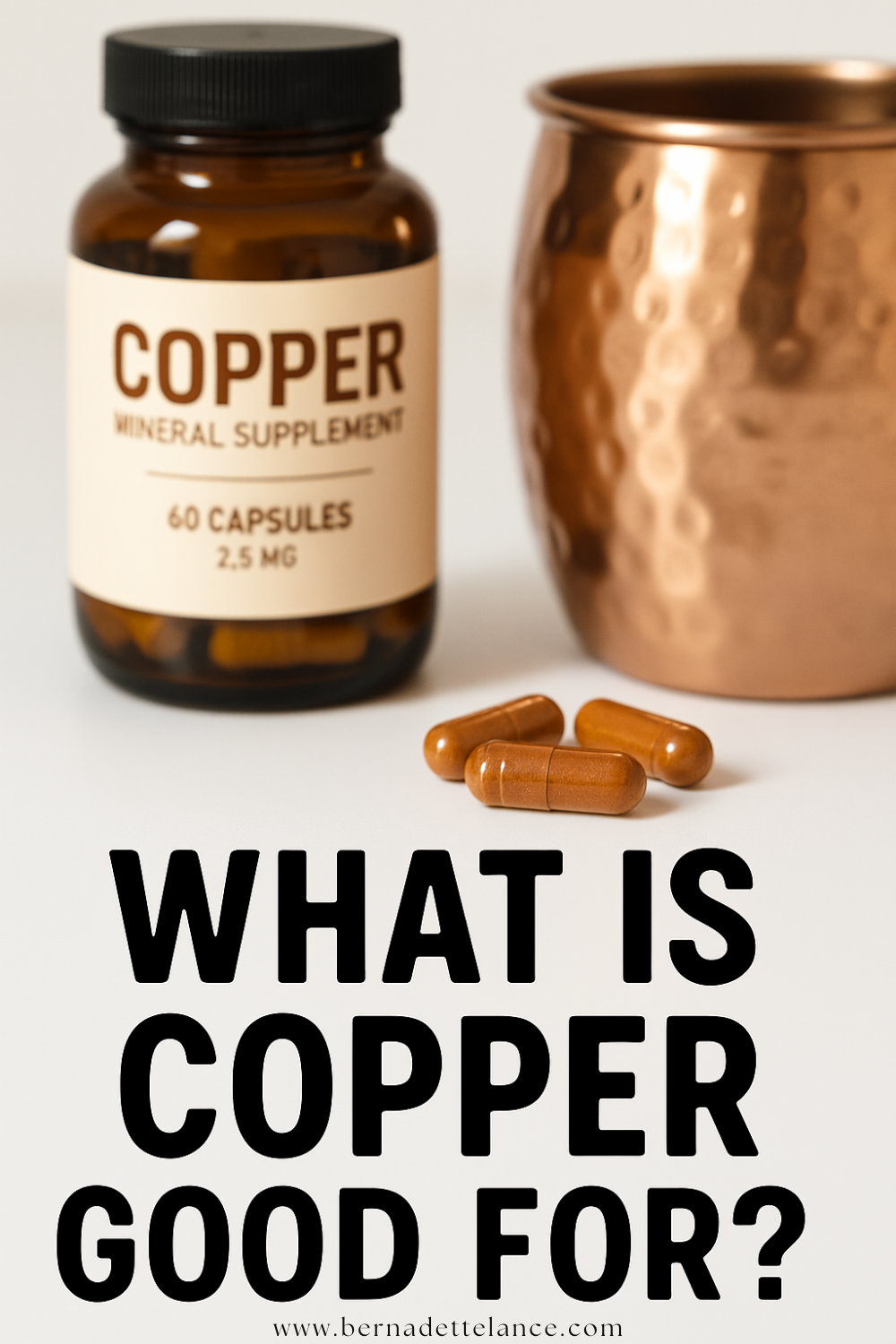
Disclaimer:
I am not a doctor or health care provider. This post is for informational purposes only and reflects my own research and personal experience with copper supplements. Copper supplementation is not suitable for everyone and can be harmful if taken in excess. Always consult a qualified health care provider before starting any new supplement, especially if you have existing medical conditions, are pregnant or breastfeeding, or are taking other medications. The information provided here should not be used to diagnose, treat, cure, or prevent any disease.
The Benefits of Copper
Copper supplement benefits are real and backed by science.
Copper plays a central role in red blood cell formation, healthy connective tissue, strong blood vessels, and immune system function.
It’s involved in energy production at the cellular level. It even helps your body absorb iron more efficiently. Without enough copper, you can have fatigue, pale skin, or brittle hair.
Here’s the part people forget. Copper is also a powerful antioxidant. It works with enzymes like superoxide dismutase to protect your cells from free radical damage. That’s one reason it has anti-aging potential for hair and skin.
Copper Supplement for Hair and Gray Hair
One of the big reasons people look into copper supplement benefits is for hair health, especially if they’ve noticed early graying.
Copper is necessary for producing melanin, the pigment that gives hair its natural color. Low copper levels can speed up graying, especially if your diet is missing variety. Tip: If you want to try copper supplement for gray hair, combine it with a good zinc copper supplement. Too much zinc alone can lower your copper levels.
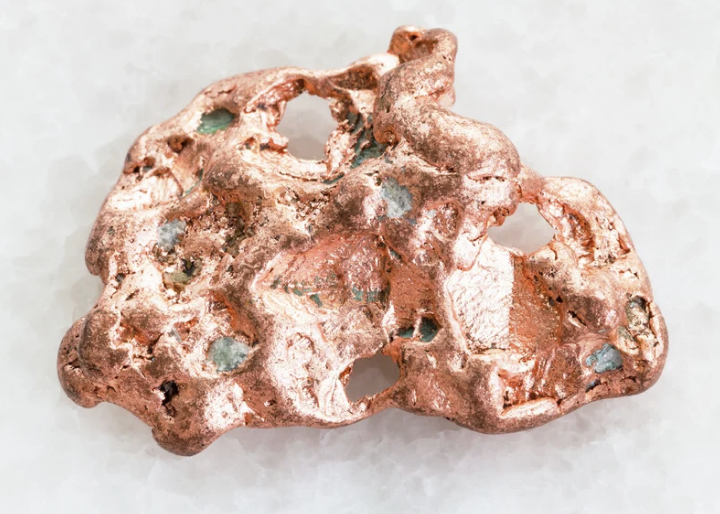
Benefits of Copper Supplements for Energy and Immunity
Copper helps your cells create energy through a process in the mitochondria. Without enough copper, your cells work less efficiently.
I noticed when I started supplementing that my afternoon slump wasn’t as bad. It didn’t feel like a caffeine rush. It felt more like I had steady energy that lasted.
Your immune system also depends on copper. It helps white blood cells fight infection and keeps your connective tissue strong so your skin can act as a barrier against bacteria.

Table: Copper in Food vs Supplements
| Source | Copper Content (per serving) | Absorption Rate | Other Nutrients Present |
|---|---|---|---|
| Beef liver | 12 mg | High | Iron, Vitamin A |
| Oysters | 4.8 mg | High | Zinc, Protein |
| Dark chocolate | 1.8 mg | Moderate | Magnesium, Antioxidants |
| Cashews | 0.6 mg | Moderate | Healthy fats, Protein |
| Natural copper supplement | 1–3 mg per capsule | High | None (pure copper) |
| Zinc copper supplement | 1–2 mg copper + zinc | High | Zinc, sometimes Vitamin C |
Copper in the Periodic Table: Interesting Facts
Copper’s atomic number is 29. It’s an excellent conductor of heat and has the highest electrical conductivity of any non-precious metal.
That’s why you see copper wire in electrical appliances and copper pipes in plumbing systems. It’s also part of musical instruments, like trumpets and cymbals, thanks to copper alloys.
Interesting fact: Native copper has been used since ancient times without smelting. That’s why the Copper Age was such a big deal for human technology.
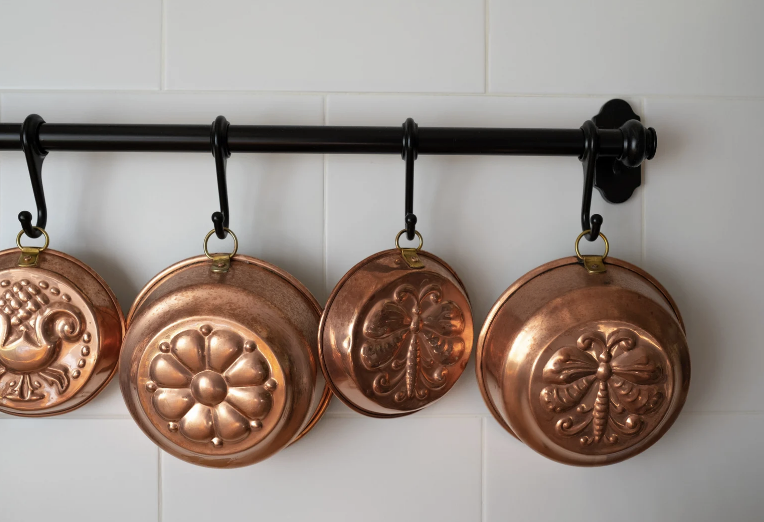
Copper Deficiency: Signs, Causes, and Risks
If you don’t get enough copper, you can develop copper deficiency.
Causes include eating little copper-rich food, high zinc intake without balancing copper, certain digestive issues like celiac disease, and rare conditions like Menkes disease.
Signs of copper deficiency:
- Fatigue
- Pale skin
- Weak immune system
- Brittle hair or hair loss
- Tingling in hands and feet
- Anemia (low red blood cells)
For me, I realized I had low copper levels after months of unexplained tiredness and pale skin, even though my iron was fine. Then I got my blood analysis which confirmed this. Please NEVER supplement without getting your blood work done first!
High Levels of Copper: The Other Side
Too much copper can be toxic.
High levels of copper can cause abdominal pain, nausea, liver damage, and in severe cases, neurological issues.
Wilson’s disease is a genetic condition where your body stores too much copper, leading to dangerous buildup in the liver and brain.
That’s why I always recommend checking with health care providers before starting supplements, especially if you have a family history of copper-related issues.
Comparing Copper Sources: Food vs Supplements
Copper from food is generally safer for healthy individuals because your body regulates absorption better from natural sources.
Copper supplements are more concentrated. They’re useful if you have a deficiency, but they also come with a higher risk of taking too much.
Natural copper supplements often come from food-based minerals. Synthetic forms can be just as effective, but some people prefer natural sources to avoid extra additives.

Zinc Copper Supplement Benefits
The zinc copper supplement benefits are worth mentioning because zinc and copper work together in the body.
Too much zinc can lower copper levels. Too much copper can lower zinc levels.
A balanced supplement keeps both in check. This is especially useful for people taking zinc for immune health, acne, or colds.
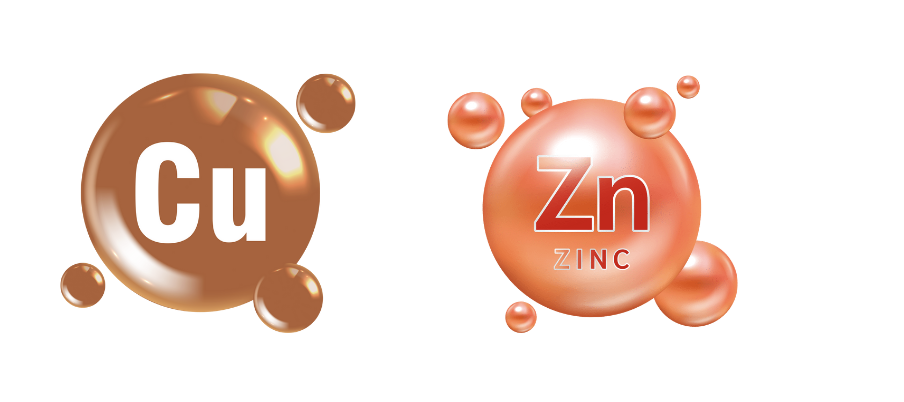
Copper in Everyday Life Beyond Supplements
Copper isn’t just in your body. It’s in public water systems, plumbing systems, electrical conductivity setups, and even in water treatment to control algae.
It’s in financial markets too. Copper prices, copper futures, and imports of copper are closely watched by investors because copper demand often reflects economic growth.
The Copper Development Association even tracks imports of semi-finished copper products and pure copper cathodes for industrial use.
The History of Copper Use
Copper was the first metal humans used in large amounts.
The ancient Egyptians, Greeks, and Romans all mined copper ores and used copper compounds like copper sulfate for agriculture and health.
Ancient times show that even without knowing about the periodic table or electron configurations, people understood copper’s useful properties.
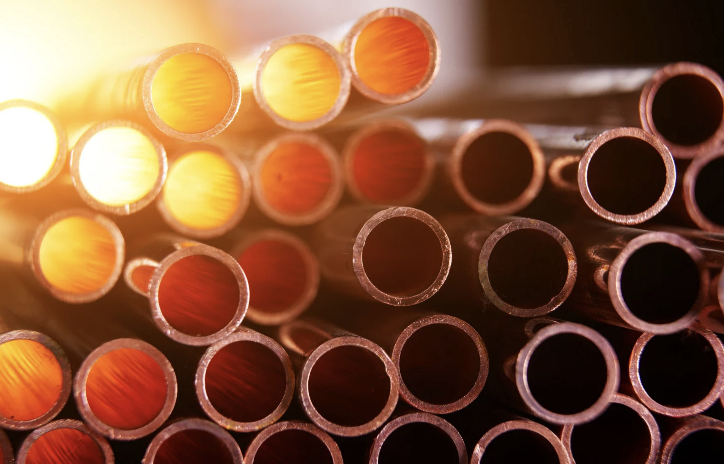
Chelated Copper
One of the copper supplements I have tried is HSN Chelated Copper Vegan.
Each capsule has 3 mg of copper in a chelated form, which means it’s bound to amino acids so my body can absorb it more easily. This form is also gentle on my stomach, which is a big plus.
It’s vegan, gluten-free, and made with vegetable capsules, so it works well with my diet and lifestyle. The bottle has 120 capsules, so it lasts me months.
I don’t take it every single day. For me, 3 mg is a lot more than the daily recommended amount (900 mcg), so I use it when I know I’m not getting enough copper from food or if I’ve been taking high-dose zinc.
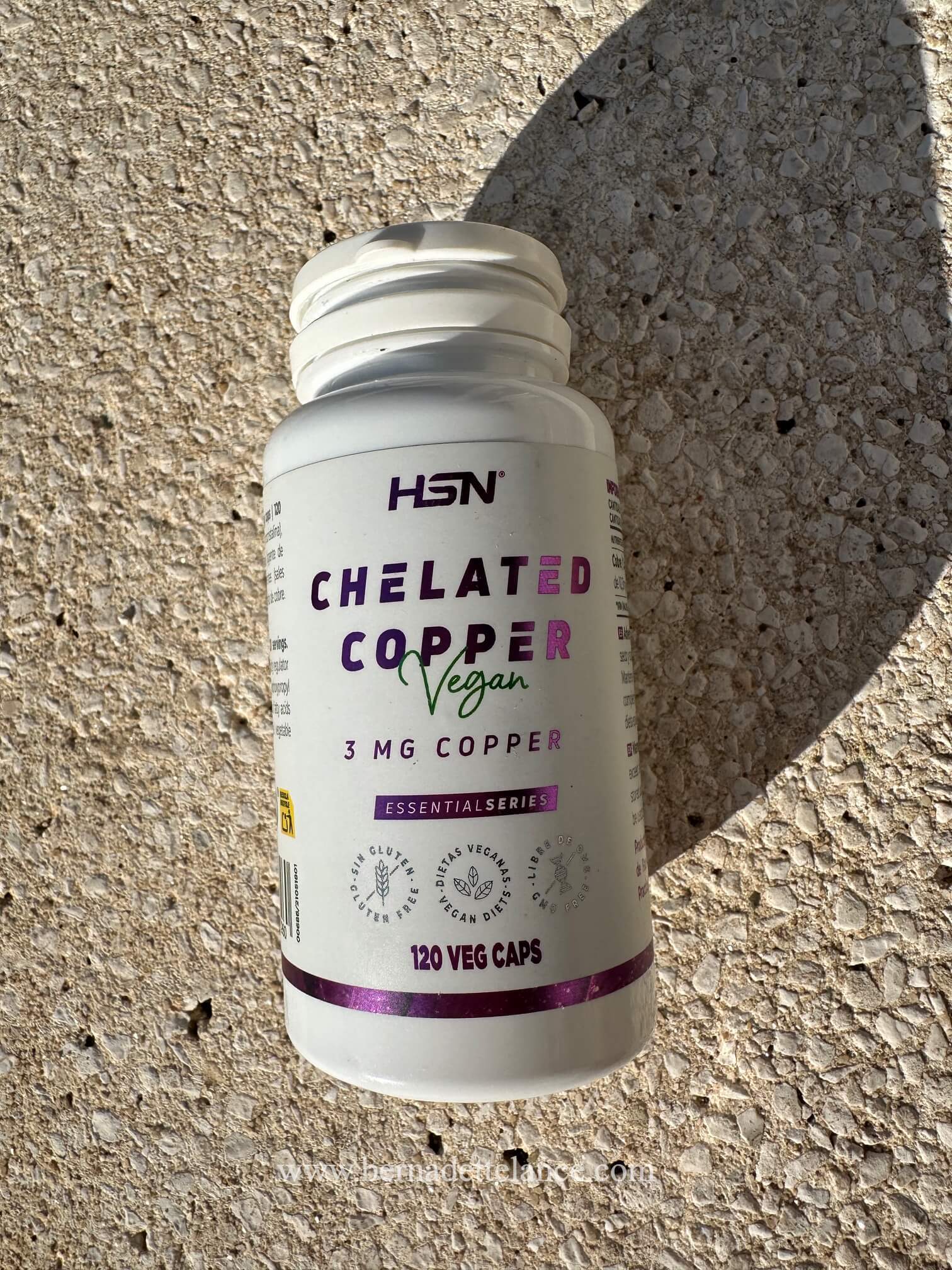
Ionic Copper (Liquid Copper Minerals)
Another type of copper I have used. Ionic copper, is already dissolved into charged mineral particles. That matters because it does not need to be broken down by stomach acid the same way pills or capsules do.
For people with low stomach acid, digestive issues, or absorption problems, ionic copper can be gentler and easier to absorb. Another reason many people choose liquid ionic copper is dosage control. You can start very low and increase slowly if needed, which is especially important with copper since balance matters. Again, copper works closely with zinc, so taking high doses without guidance is never a good idea. As always, check your copper levels before starting any new supplements, and avoid combining copper with high-dose zinc at the same time.
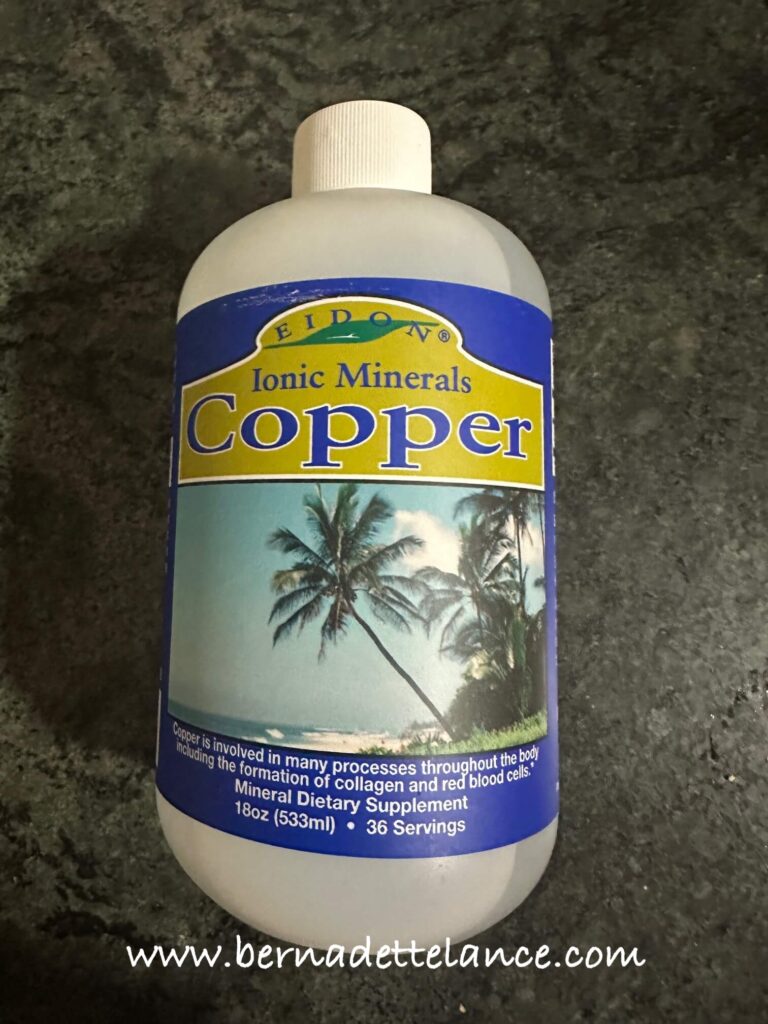
When I Wouldn’t Take Copper
Even though I take copper, I know it’s not for everyone. There are times when you should absolutely skip it:
- If you have Wilson’s disease (a genetic condition that makes your body store too much copper).
- If a blood test shows you already have high copper levels.
- If you have serious liver disease unless your doctor specifically says it’s safe.
- If you’re already exposed to high copper from things like drinking water through old copper pipes.
For me, the key has been knowing my own levels and not taking it blindly.
The Different Forms of Copper Supplements
I’ve tried a couple forms of copper over the years. Here’s what I’ve learned:
- Copper Gluconate – Affordable, absorbs well.
- Copper Bisglycinate (Chelated) – This is the one I take now. Best absorption for me and no stomach upset.
- Copper Citrate – Also good for absorption, but harder to find.
- Food-based copper – Comes from things like liver or oysters. Feels gentler but usually more expensive.
- Ionic Copper – Copper that has been dissolved into charged mineral particles.
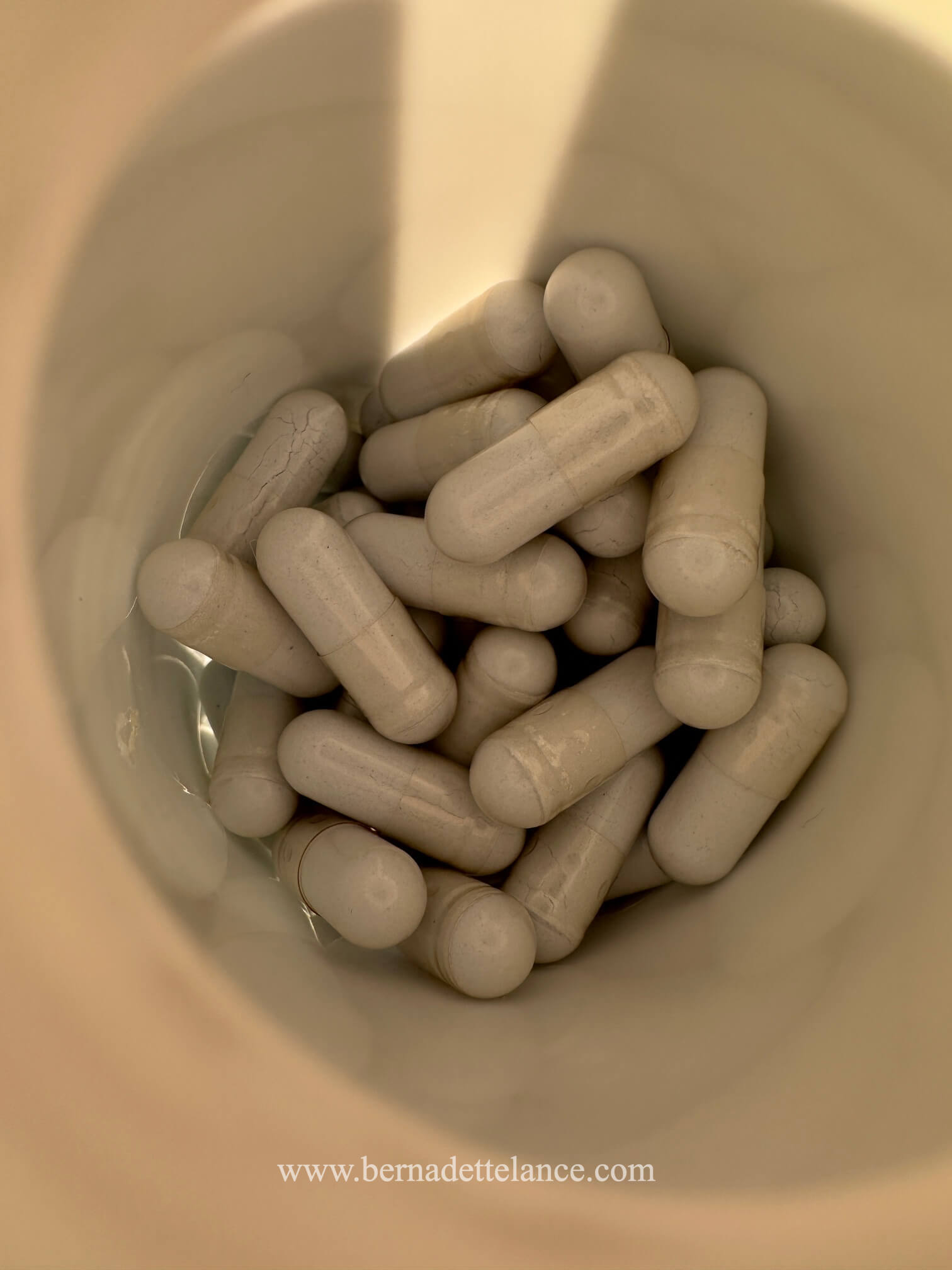
Tips for Taking Copper Supplements Safely
- Start small. Don’t jump into large amounts of copper.
- Balance with zinc. This is the most important tip.
- Track your symptoms. Energy, hair, and skin changes can take months.
- Get your copper levels tested if you’re unsure.
- Avoid taking it with high iron meals to improve absorption.
Potential Side Effects of Too Much Copper
Large amounts of copper can lead to:
- Abdominal pain
- Nausea
- Vomiting
- Liver damage
High risks come from supplements or contaminated drinking water, not from eating a variety of foods.
FAQ: Copper Supplements
Q: How much copper do healthy people need?
A: The recommended dietary allowances for adults are around 900 micrograms per day.
Q: What is the best copper supplement?
A: Chelated copper or a balanced zinc copper supplement is often recommended.
Q: Can copper supplements reverse gray hair?
A: They may help slow it if the cause is copper deficiency, but results vary.
Q: Can copper IUDs affect copper levels?
A: Usually not in healthy individuals, but if you have symptoms of high copper, get tested.
Q: Can copper be harmful?
A: Yes, too much copper is toxic. Always stick to safe intakes.
Conclusion: The Benefits of Copper Are Worth Knowing
The benefits of copper go far beyond hair color and energy.
It’s an ancient, important metal with a central role in the human body, industry, and history.
From red blood cells to connective tissue, from ancient Egypt to modern financial markets, copper is everywhere.
Whether you get it from a natural copper supplement, a zinc copper supplement, or a variety of foods, make sure you’re getting enough copper but not too much.
I’ve felt the difference myself. And for me, paying attention to my copper levels has been a small change with big results.
If you’re curious, talk to your health care provider and see if a copper supplement could help you too.



